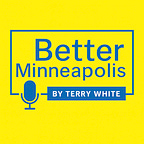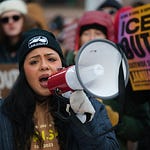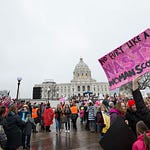Introduction
Election Day is tomorrow — Tuesday, November 4, 2025.
What follows are our predictions, drawn from close observation over the past year and the surveys we’ve conducted. These are not endorsements, but simply our best attempt to forecast the outcomes.
If you’re still finalizing your choices, we encourage you to revisit our many candidate interviews — available on the Better Minneapolis YouTube channel, Apple Podcasts, and Spotify.

Mayor
Prediction: Jacob Frey wins.
Confidence level: 70 out of 100.
1) Our survey of 122 respondents across multiple platforms shows Frey with a commanding lead among voters over 55. More tellingly, he breaks even with renters and dominates among homeowners.
2) The strategy to rank Fateh, Hampton, and Davis as a group is not being followed consistently. About half of voters who support Hampton or Davis also rank Frey somewhere on their ballot.
3) When Frey is removed from the polling model, Davis leads — suggesting that Hampton’s supporters prefer Davis over Fateh.
4) On Polymarket, an online prediction platform where over $1.1 million has been wagered on this race, Frey holds a 76% chance of winning. That figure has remained steady for the past week. The low point in the last month came on October 25, when Frey stood at 64% and Fateh at 37%. Fateh has since dropped to 24%. The theory behind prediction markets is that participants, willing to stake real money, tend to base their decisions on data rather than ideology.
5) Fateh has stumbled in the final days of the campaign. His performance in the Star Tribune/MPR debate weakened his standing, and his decision to skip a Star Tribune interview reinforced perceptions that he engages primarily with those who agree with him.
6) Finally, many of the negative attacks on Frey have not been paired with a compelling alternative vision for the city. The critique is clear, but the path forward from his opponents has been less so.
Ward 1
Prediction: Elliott Payne wins.
Confidence level: 95 out of 100.
This race has generated little commentary or public polling. As the incumbent, Payne appears to enjoy steady support, and we’ve seen no clear signs of dissatisfaction within the ward.
Ward 2
Prediction: Shelley Madore wins.
Confidence level: 55 out of 100.
While unseating an incumbent is always difficult, Madore brings strong credentials that could resonate with voters in this historically low-turnout ward. Her campaign has been active and visible, and the relatively small number of votes required to win gives her a realistic path to victory.
Early voting remains low — only Wards 4, 5, and 9 have seen fewer ballots cast. The League of Women Voters Ward 2 forum, held on campus, drew little student turnout, highlighting limited engagement among younger voters. Student candidate Max Theroux has shown potential but is unlikely to generate the level of enthusiasm needed to shift the outcome.
Ward 3
Prediction: Michael Rainville wins.
Confidence level: 95 out of 100.
Rainville remains well-regarded in his ward and faces limited opposition. His challenger, Marcus Mills, has not mounted a campaign strong enough to pose a serious challenge.
Ward 4
Prediction: LaTrisha Vetaw wins.
Confidence level: 95 out of 100.
An ally of Michael Rainville, Vetaw remains a strong and visible voice for her ward. There are no clear signs that her re-election is at risk; challengers Marvina Haynes and Leslie Davis have not mounted campaigns with significant traction.
Ward 5
Prediction: Ethrophic Burnett wins.
Confidence level: 30 out of 100.
Burnett, a former city employee who worked on the Neighborhood Safety team, benefits from her connections within City Hall and the endorsement of outgoing incumbent Jeremiah Ellison — factors that could help her edge out the field.
Meanwhile, Pearll Warren and Miles Wilson appear to be competing for the more moderate share of the vote. Three additional candidates — Anndrea Young, Maurice Ward, and Jovan Northington — make this the most unpredictable race of the cycle, with no clear front-runner emerging.
Ward 6
Prediction: Jamal Osman wins.
Confidence level: 95 out of 100.
Despite controversy surrounding his wife’s now-closed nonprofit, Osman appears to have retained strong support within the ward. His mutual endorsement with state senator Omar Fateh strengthens his standing among Somali residents, who make up a significant portion of the electorate. Challenger Mohamoud Hassan has not generated the visibility or momentum needed to seriously challenge the incumbent.
Ward 7
Prediction: Elizabeth Shaffer wins.
Confidence level: 50 out of 100.
Shaffer has mounted an organized and disciplined campaign against incumbent Katie Cashman. Her prior service on the Park Board has bolstered her reputation as an experienced, capable candidate.
While Cashman holds a long list of endorsements, enthusiasm among her critics appears unusually strong. Her narrow victory in the previous election suggested potential vulnerability, and her campaign’s recent fundraising plea for $2,000 to print additional flyers underscores limited financial momentum in the final stretch.
Ward 8
Prediction: Josh Bassais wins.
Confidence level: 65 out of 100.
Bassais has gained steady ground on his main opponent, Soren Stevenson, over the course of the campaign. After a somewhat rocky start, he has demonstrated the organization, temperament, and appeal needed to attract voters outside the Democratic Socialists of America (DSA) base, who support Stevenson.
A key factor will be the second-choice votes of Bob Sullentrop, who is expected to capture between 5–10% of the vote, similar to his showing in the previous election. Bassais also benefits from the endorsement of incumbent Andrea Jenkins, who remains well-regarded in the ward. These dynamics point to a narrow but likely win for Bassais.
Ward 9
Prediction: Jason Chavez wins.
Confidence level: 75 out of 100.
Chavez’s name recognition and campaign organization give him a strong advantage as the incumbent. While he faces notable opposition from some ward residents, challenger Dan Orban has struggled to build visibility or fundraising momentum sufficient to pose a serious threat.
Ward 10
Prediction: Lydia Millard wins.
Confidence level: 40 out of 100.
Millard has run an energetic, well-organized campaign aimed at reaching voters across the ward. Her main opponent, incumbent Aisha Chughtai, has been less visible and appears to be concentrating her efforts on anti-Frey and pro-renter groups, with limited outreach beyond those circles.
Frustration over ongoing challenges in Uptown has mobilized many residents behind Millard, and that grassroots energy could supply the votes she needs for a narrow win. The third candidate, DeShanneon Grimes, remains a wildcard — likely to receive less than 5% of the vote, but her supporters’ second-choice rankings could prove decisive in a close race.
Ward 11
Prediction: Jamison Whiting wins.
Confidence level: 85 out of 100.
Whiting entered the race early and appeared to solidify his position following the ward convention. His two challengers, Mariam DeMello and Jim Meyer, have mounted credible campaigns but continue to trail in visibility and organization. While they may narrow the margin, Whiting’s steady presence and early momentum make him the likely winner.
Ward 12
Prediction: Aurin Chowdhury wins.
Confidence level: 85 out of 100.
Chowdhury, a popular incumbent, built on the strong foundation of her 2023 campaign with another well-organized effort this year. Her two challengers, Becka Thompson and Edward Bear Stops, have struggled to match her visibility and fundraising strength. Chowdhury has raised nearly four times as much as Thompson and appears poised for an easy re-election.
Ward 13
Prediction: Linea Palmisano wins.
Confidence level: 100 out of 100.
Palmisano faces no serious competition in this race and continues to meet the expectations of her ward.
Conclusion
We welcome feedback on these predictions and acknowledge that they are based on limited data and observation. Still, the results of this election will likely shift the balance on the City Council. If our projections hold, Mayor Frey can expect roughly seven consistently supportive votes, two occasional allies, and four members who will regularly oppose his agenda.
Momentum for DSA-aligned candidates appeared to peak around the Minneapolis DFL convention in July and held steady through mid-October. While those candidates continue to benefit from passionate grassroots support, their appeal remains concentrated within a narrower base. In the final weeks of the campaign, more moderate candidates have gained broader name recognition and strengthened their footing citywide.
We chose not to make predictions in other races, as we do not feel we have a clear enough grasp of their dynamics. However, if the momentum has shifted as we believe, incumbents and more mainstream candidates are likely to perform well. For readers looking to understand the broader field, the Minneapolis Times list of candidates offers a helpful overview of each candidate’s general political alignment.











